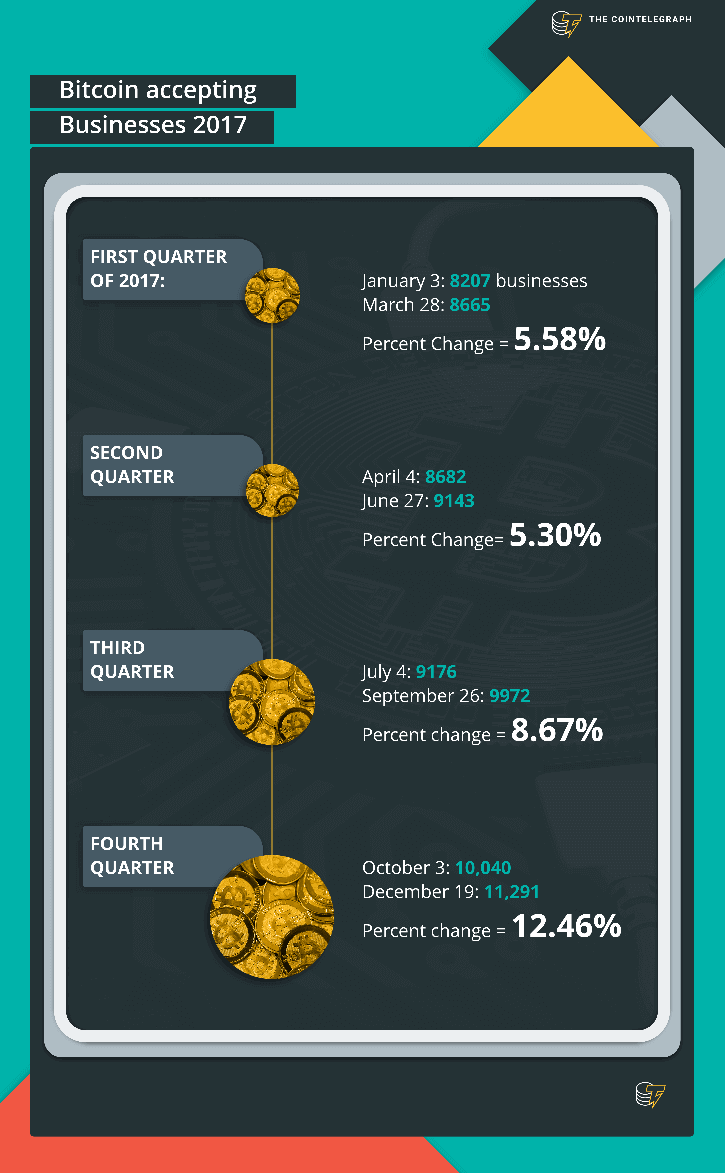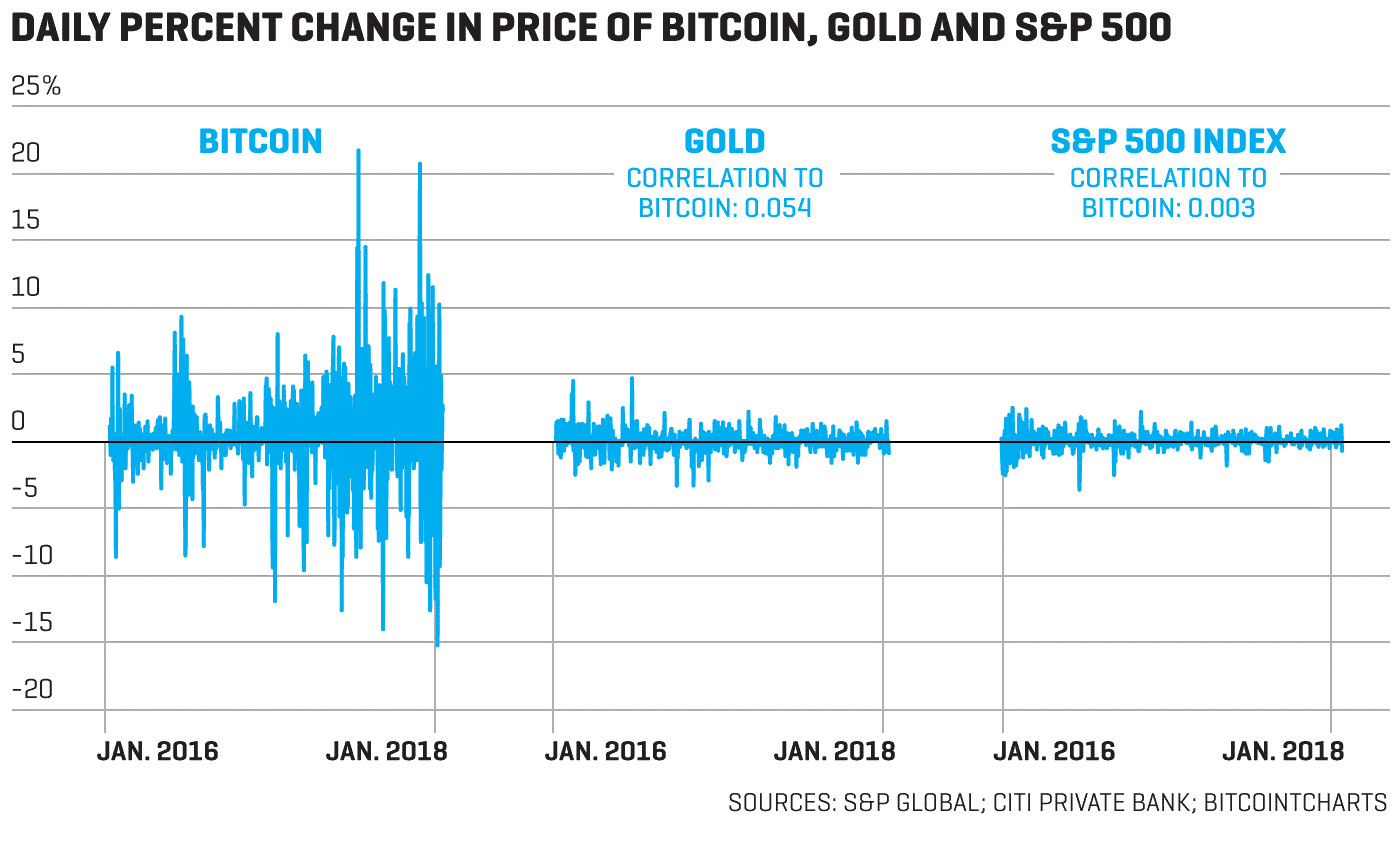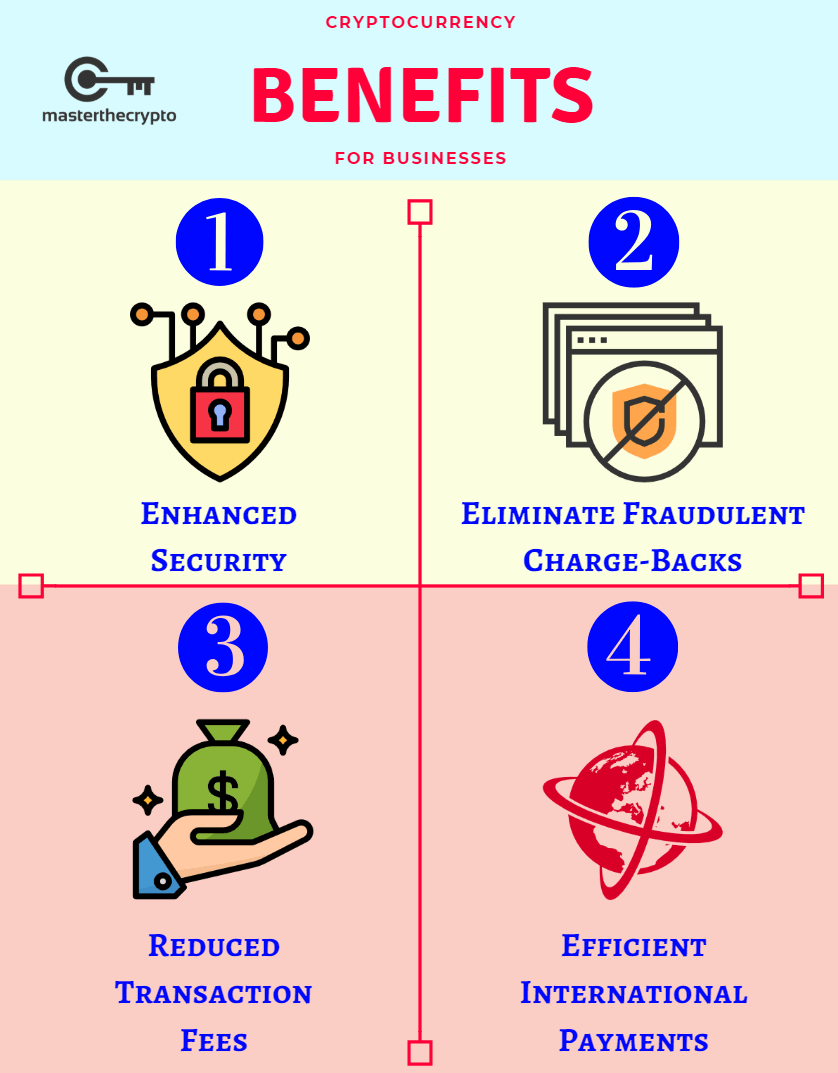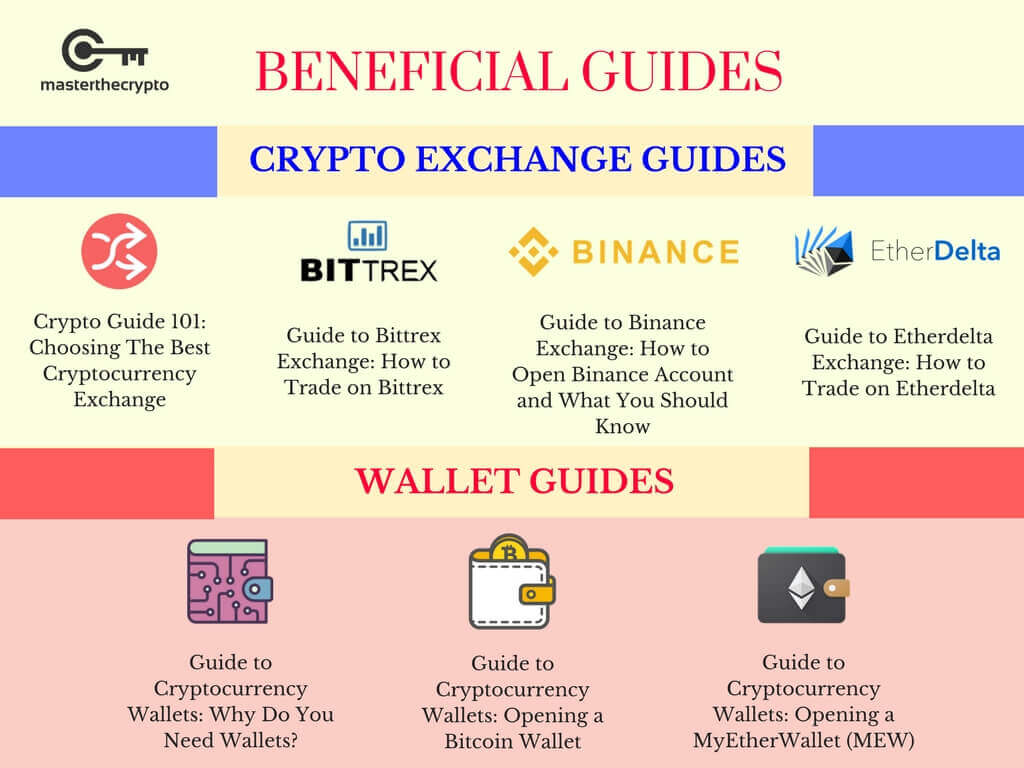This article takes a look at the importance of retail-driven crypto adoption as a pillar for mainstream cryptocurrency adoption, as well as the issues that comes in the way of that.
Mainstream Cryptocurrency Adoption
It can be tempting to focus solely on the price of a cryptocurrency or better yet, its market capitalization, when we try to fundamentally assess the value of cryptocurrencies. The goal of cryptocurrencies is to provide a decentralized alternative to current forms of money, and a core part in making that happen is to achieve mainstream adoption. This entails the widespread use of cryptocurrencies as a medium of exchange for common goods and services. It could therefore be established that retail adoption is the main driver for mainstream acceptance.
Though Bitcoin and other coins may have fallen in value since the start of 2018, retailers are increasingly accepting Bitcoin – and other cryptocurrencies – as a payment method. After all, cryptocurrencies were created to be a more decentralized and efficient form of money.
(Read more: Evolution of Cryptocurrency: The Problem With Money Today)
Increased Retail Adoption
The first retailers to accept Bitcoin as a payment method were Overstock, a major e-store for electronics. They have recently added over 40 altcoins to their roster of options. Electronics and computing retailer Newegg were quick to follow, as they introduced Bitcoin payment methods in 2014. Other established giants that accept cryptocurrency include Amazon, Microsoft, Apple, Expedia and Cheap Air.
It is interesting to note that certain features afforded by cryptocurrency fits certain industries better than others. Casino and iGaming industries have also been quick to adopt, with casinos offering Bitcoin payments for use at their front desks, gift shops and restaurants. E-commerce companies can offer an international payment option without the usual hassles of cross-border transactions. Additionally, privacy coins have found increased adoption not just in illicit trade but also in transactions that require high levels of anonymity.
The CEO of cryptocurrency payment processor Bitpay, says that demand from merchants is increasing in Canada and mentions that Overstock’s acceptance will help to drive wider adoption. This is great news for the wider cryptocurrency industry. Not only that, but there is a general increase in the number of institutionally-managed funds focusing on cryptocurrencies as an asset class. Prominent fund managers like Jacob Gottlieb are in the midst of establishing funds to capitalize in the infant cryptocurrency market.
Indeed, there are now over 370,000 vendors in 182 countries that accept Bitcoin payments. In 2017 alone, the number of retailers accepting cryptocurrency rose by 30%. These seemed to increase Bitcoin’s utility (another term for ‘use-case’), as monthly payments for goods and services have increased from 9.2 million in 2013 to 190.2 million in 2017—a 2000% jump. Here’s a look at the increasing number of businesses accepting Bitcoin in 2017:

(Source: Cointelegraph)
Barriers for Retailers in Accepting Cryptocurrencies
Unfortunately, there are still several barriers that prevent a wider acceptance of cryptocurrency payments by merchants.
-
Volatility
The primary barrier is the extreme volatility of the cryptocurrency market; it is difficult for retailers to accept, and for consumers to spend, in a climate that sees prices spike so dramatically. Make no mistakes, cryptocurrencies are probably the most volatile asset in existence today. Make no mistakes, cryptocurrencies are probably the most volatile asset in existence today. Here’s a comparison of the volatility of cryptocurrencies when compared to the stock markets (represented by S&P 500) and Gold prices:

The volatility of the Gold and stock markets pale in comparison to that of the cryptocurrency markets. Given the relative infancy of the industry, it may take time for the cryptocurrency markets to stabilize and weed out its extreme volatility.
(See also: Bitcoin vs Alt Coins Returns: Comparison of Gains Between Bitcoin & Altcoins Investing)
-
Liquidity Issues
Bitcoin can also be difficult to liquidate, leaving retailers with great financial risks. The lack of robust liquidity can reduce merchant’s profitability (due to large spreads), increase revenue instability and slow operational efficiency. Add to this the common network fluctuation in transaction fees and processing times, it is easy to understand why retail adoption has been slow.
Solution
A possible remedy for the issues outlined above is for merchants to have access to Bitcoin payment processing methods that lock in the real-time exchange rate and allow for transactions to be settled in either crypto or fiat. This would minimise risk and operational inefficiency when accepting cryptocurrencies as a mode of payment. (Read more: Crypto Guide 101: Choosing The Best Cryptocurrency Exchange).
If these barriers can be adequately tamed, then retailers can revel in a range of benefits that cryptocurrencies can offer, including increased security, verified transactions that eliminate fraudulent charge-backs, reduced transaction fees, and the ability to make international payments without cross-border banking.

(See also: Crypto Beginners Guide: 5 Things Crypto Newbies Should Know)
Why is Retail Acceptance Important?
Where the general public are concerned, one of the main limitations stopping them from discovering Bitcoin as a valuable commodity is the inability to conveniently spend it on everyday goods and services. Much of the interest and activity in the cryptocurrency market comes from individuals trading and speculating on prices. It can also be argued that the extreme volatility in the cryptocurrency market is due to the market’s speculative activities, rather than being fundamentally substantiated by real-world adoption and use-cases.
When cryptocurrencies can be spent conveniently, mainstream adoption will follow. For this to happen, businesses need to accept cryptocurrencies . When merchants accept cryptocurrency as a mode of payment, this increases the liquidity, usability and utility of cryptocurrencies.
In the future, paying for goods and services using cryptocurrency could be as common as cash. Using an e-wallet on your phone might be as easy as swiping a debit card. Retail acceptance is a key driving force in the mainstream adoption of cryptocurrency and the determination of its status as a valuable commodity or currency.
(You might also be interested in: Guide to Forks: Everything You Need to Know About Forks, Hard Fork and Soft Fork)
Beneficial Resources To Get You Started
If you're starting your journey into the complex world of cryptocurrencies, here's a list of useful resources and guides that will get you on your way:

Trading & Exchange
- Crypto Guide 101: Choosing The Best Cryptocurrency Exchange
- Guide to Bittrex Exchange: How to Trade on Bittrex
- Guide to Binance Exchange: How to Open Binance Account and What You Should Know
- Guide to Etherdelta Exchange: How to Trade on Etherdelta
- Guide To Cryptocurrency Trading Basics: Introduction to Crypto Technical Analysis
- Cryptocurrency Trading: Understanding Cryptocurrency Trading Pairs & How it Works
- Crypto Trading Guide: 4 Common Pitfalls Every Crypto Trader Will Experience
Wallets
- Guide to Cryptocurrency Wallets: Why Do You Need Wallets?
- Guide to Cryptocurrency Wallets: Opening a Bitcoin Wallet
- Guide to Cryptocurrency Wallets: Opening a MyEtherWallet (MEW)
Read also: Crypto Trading Guide: 4 Common Pitfalls Every Crypto Trader Will Experience and Guide To Cryptocurrency Trading Basics: Do Charts & Technical Analysis Really Work?
Get our exclusive e-book which will guide you on the step-by-step process to get started with making money via Cryptocurrency investments!
You can also join our Facebook group at Master The Crypto: Advanced Cryptocurrency Knowledge to ask any questions regarding cryptos!

I'm Aziz, a seasoned cryptocurrency trader who's really passionate about 2 things; #1) the awesome-revolutionary blockchain technology underlying crypto and #2) helping make bitcoin great ‘again'!

